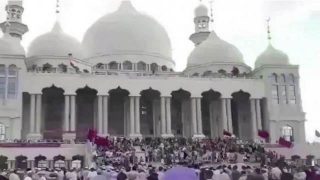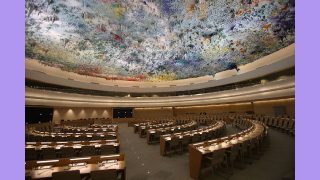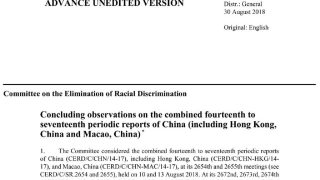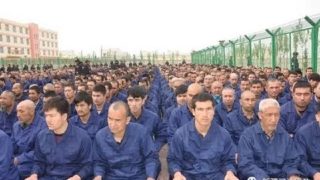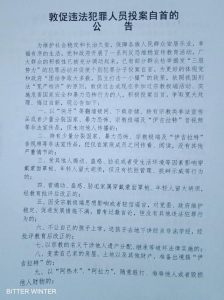
Authorities have issued a notice as per which, any display of religious belief, such as wearing a burqa or having a long beard, is akin to a crime, and “criminals” must surrender themselves.
Bitter Winter has accessed an official document issued by the Xinjiang government. It is a notice that was adopted against religious belief and designates normal religious behavior as “committing a crime.”
As per the notice, “criminals” include those who have used the file sharing app Zapya to bypass the firewall and download “illegal” religious videos, those who have worn a burqa or kept a long beard, those who sent their children to underground scripture classes, and more.
The notice claims that if people surrender themselves, they will be dealt with leniently. However, many doubt this to be true and feel it is a ruse to arrest Muslims.
In fact, in a case recently reported by Bitter Winter, an Uyghur from Kashgar turned to the police a video card with religious content that he had received from a friend, but was shown no leniency and was arrested and sentenced to 15 years in prison without a proper trial.
Public Notice Urging Criminal Offenders to Surrender
(1) Those who have used “Zapya”, etc., to bypass the firewall to download, store, or possess illegal religious propaganda materials or [content related to] state separatism, violence and terror, religious extremism, “hegira” audio/video, and other illegal propaganda materials, but who have not disseminated [such materials] to others;
(2) Those in possession of a small amount of [content related to] state separatism, violence and terror, religious extremism, “hegira” audio/video, or other illegal propaganda materials, but who have only transmitted [such materials] between family members to watch or read, without any other serious circumstances;
(3) Those who, having been incited, tempted, or coerced by others, or having been affected by one’s living environment or other factors, have worn a burqa, or, as a young man, kept a long beard, but neither resisted management nor engaged in provocative demonstrations or other such behavior;
(4) Those who have previously incited, tempted, or coerced family members to wear a burqa, or, as a young man, keep a long beard, but who amended themselves after [receiving] educational criticism;
(5) Those who, as a result of being influenced by the extreme religious thought or readily believing rumors, are dissatisfied with the Party committee and government’s measures for maintaining stability and promoting development, and have previously used extreme speech, but have not committed any other illegal or criminal acts;
(6) Those who do not let their children go to school, and send their children to underground scripture class to study scripture illegally, but who have amended themselves after [receiving] criticism and education;
(7) Those who, in the name of religion, have interfered with the allocation or receipt of another person’s inheritance or have otherwise undermined implementation of the law;
(8) Those who have sold off their house, land and other property, and are preparing to leave the country to engage in “hegira”;
(9) Those who, based on [whether something is considered] “haram” or “halal,” have arbitrarily beaten or insulted others, or damaged others’ property.
Source: Bitter Winter / Li zaili
